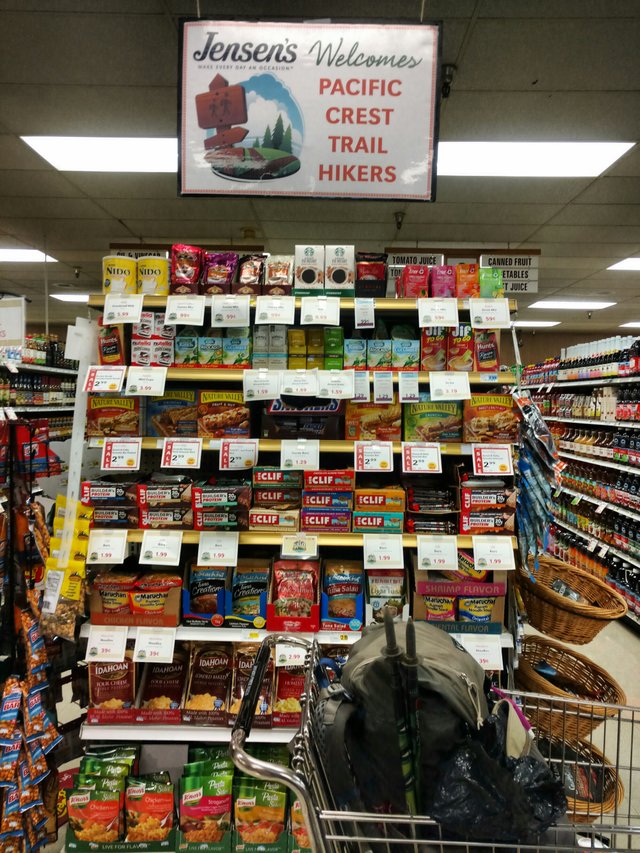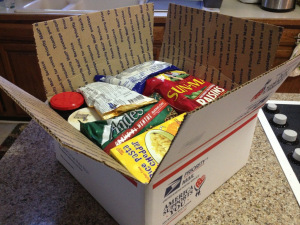Resupply on the Appalachian Trail.
I was asked recently, by @drpuffnstuff, about how I will keep myself supplied with food etc while I’m walking the Appalachian Trail. This is an issue I’ve been thinking a lot about lately and so I’d love to share my thought and plans with you guys!
The AT passes through some of the wildest parts of Eastern America and I will often be in very remote backcountry or high in the mountains far from ‘civilisation’. This said, the trail will usually pass through, or very close to, a town/village every 3-6 days.
Luckily for me this means that I wont have to carry any more than 6 days worth of food at any one time.
Resupplying is going to be fairly straightforward; I have two options.
Number one is to purchase all the food I need when I arrive in each town at a supermarket, gas station, or local shop.
The pros of doing this are that I’ll be able to pick and choose what kind of food I eat according to my cravings and what I feel my body needs. I’ll also be able to keep a flexible schedule; if I decide I want to take it easy for a few days (and therefore take longer to reach my next resupply point) I can stock up more than I usually would and not have to worry. Equally, If I arrive in town with food left over, I only have to buy a little to have a full pack again.
The cons here are firstly, as a vegetarian I might be limited with choice and variety in some of the smaller towns I go to, meaning that I might get tired of eating the same things over and over again. Secondly; price. The AT brings a lot of people to towns which might otherwise be very quiet and so, understandably, the shops in these towns make the most of this and set their prices high.
 A shop on the Pacific Crest Trail catering to its many backpacking customers.
A shop on the Pacific Crest Trail catering to its many backpacking customers.
Resupply option number two is to send myself food parcels before I set off called mail drops. This means buying lots of food (and other helpful things) before I leave and sending packages on to locations along the trail almost like leaving care packages for myself.
Pros to this are cost – buying and sending food before setting off and therefore reducing on trail expenses will help a lot with the financial planning required as it is easier to keep track of a few big, bulk purchases rather than wondering where all your cash is going when you are spending small amounts of money very frequently. Also, sending myself food will ensure that I’ve always got a good vegetarian option with me so that I don’t end up eating mashed potatoes or rice for every meal! Another great feature to mail drops is the possibility to ‘bounce’ your package, free of charge, on to the next town. This will be great if I have leftover food or for when I want to temporarily stop carrying some gear items – for instance during the summer months I may choose to ‘bounce’ my winter sleeping bag forward until it starts to get cold again in order to reduce my pack weight.
The main downside to mail drops is that nobody knows what they want for dinner in 7 weeks time, let alone 5 months time. Walking long distances every day is going to change my appetite hugely; I will be hungrier and crave completely different things to what I do in my day to day life. So a big con to mail drops is their lack of flexibility in choosing what you want to eat, this is also true in that relying on mail drops means that you have to be more rigid about what towns you stop in and how fast you get there. This means less leeway for joining up with new friends or taking spontaneous days off.

An example of how you might fill a mail drop package.
For me both of these resupply options come with their own benefits and challenges and so I plan to keep supplied using a combination of both methods in order to keep myself full and happy but on a flexible schedule.
Thanks for reading! Please upvote and resteem if you fancy supporting me on my big AT adventure. Leave a reply down below if you have any comments, questions or tips for me!